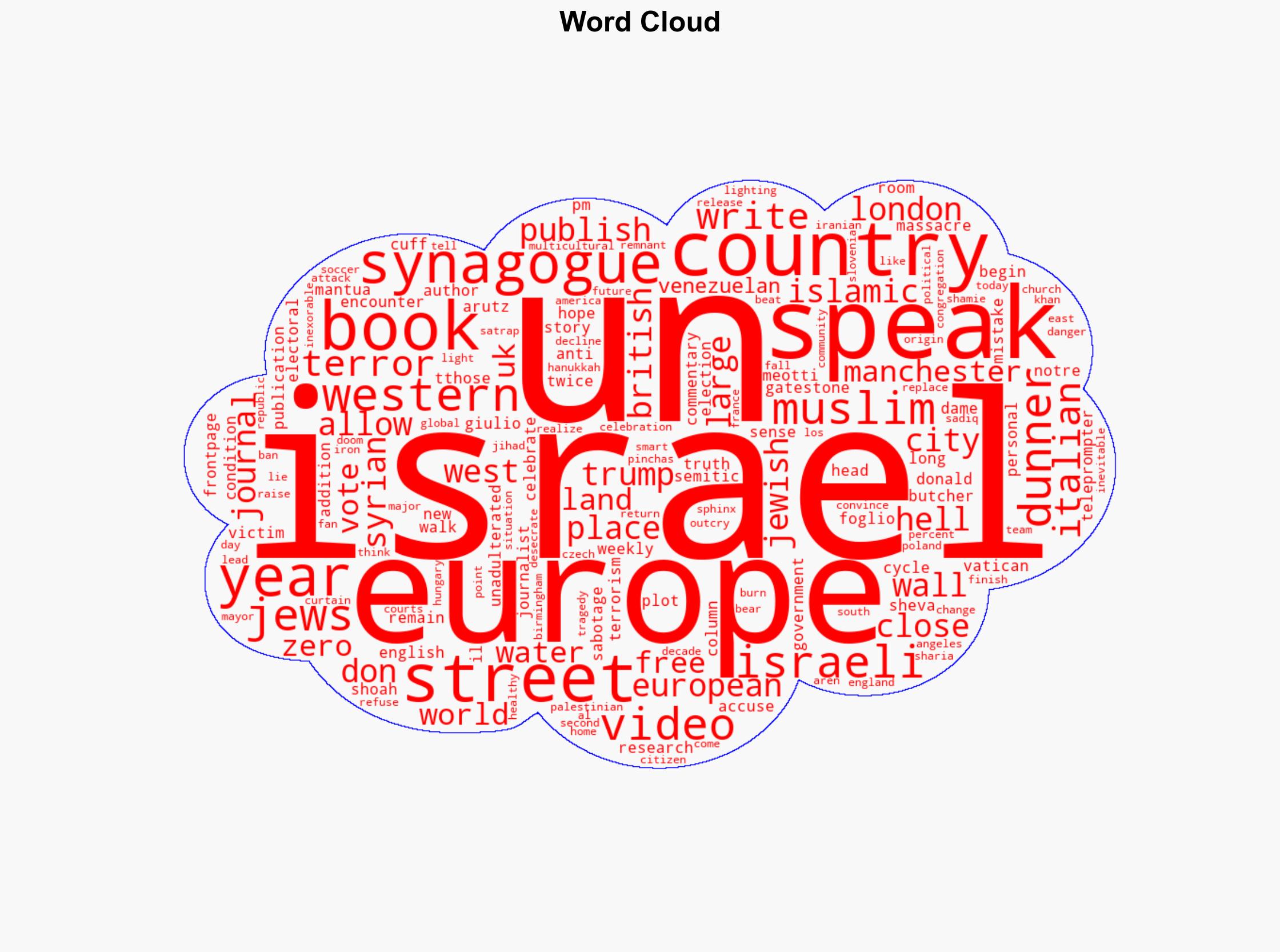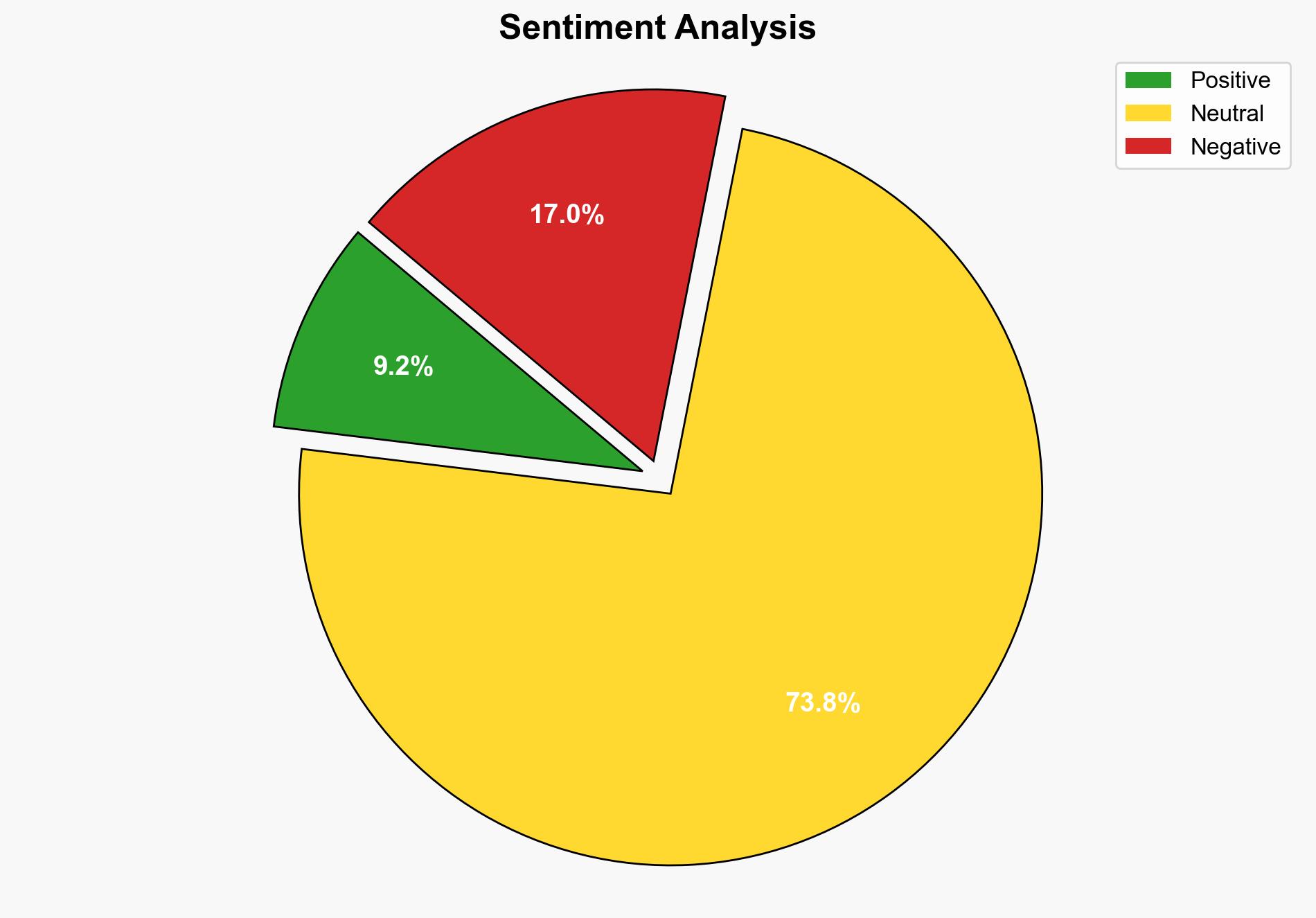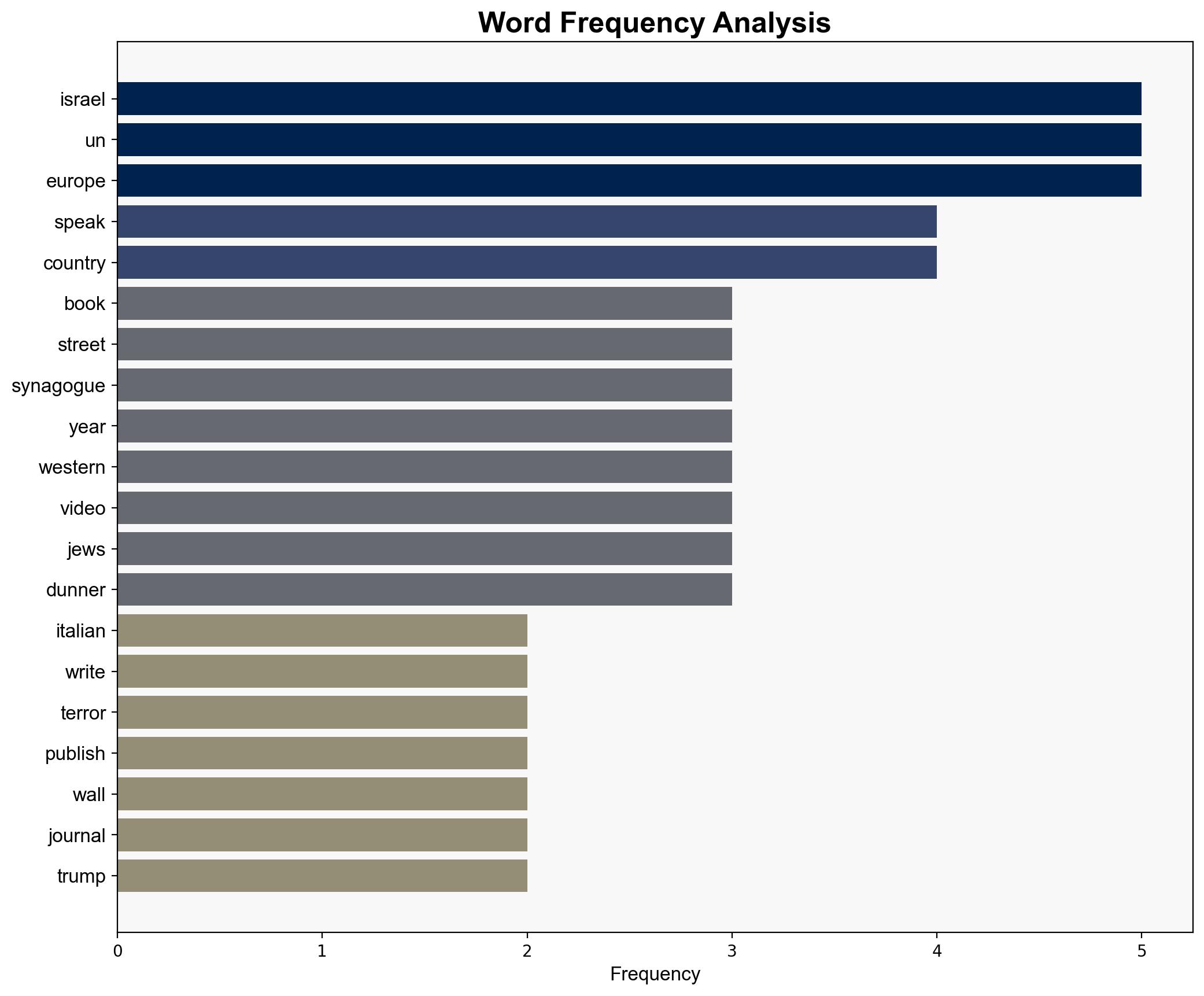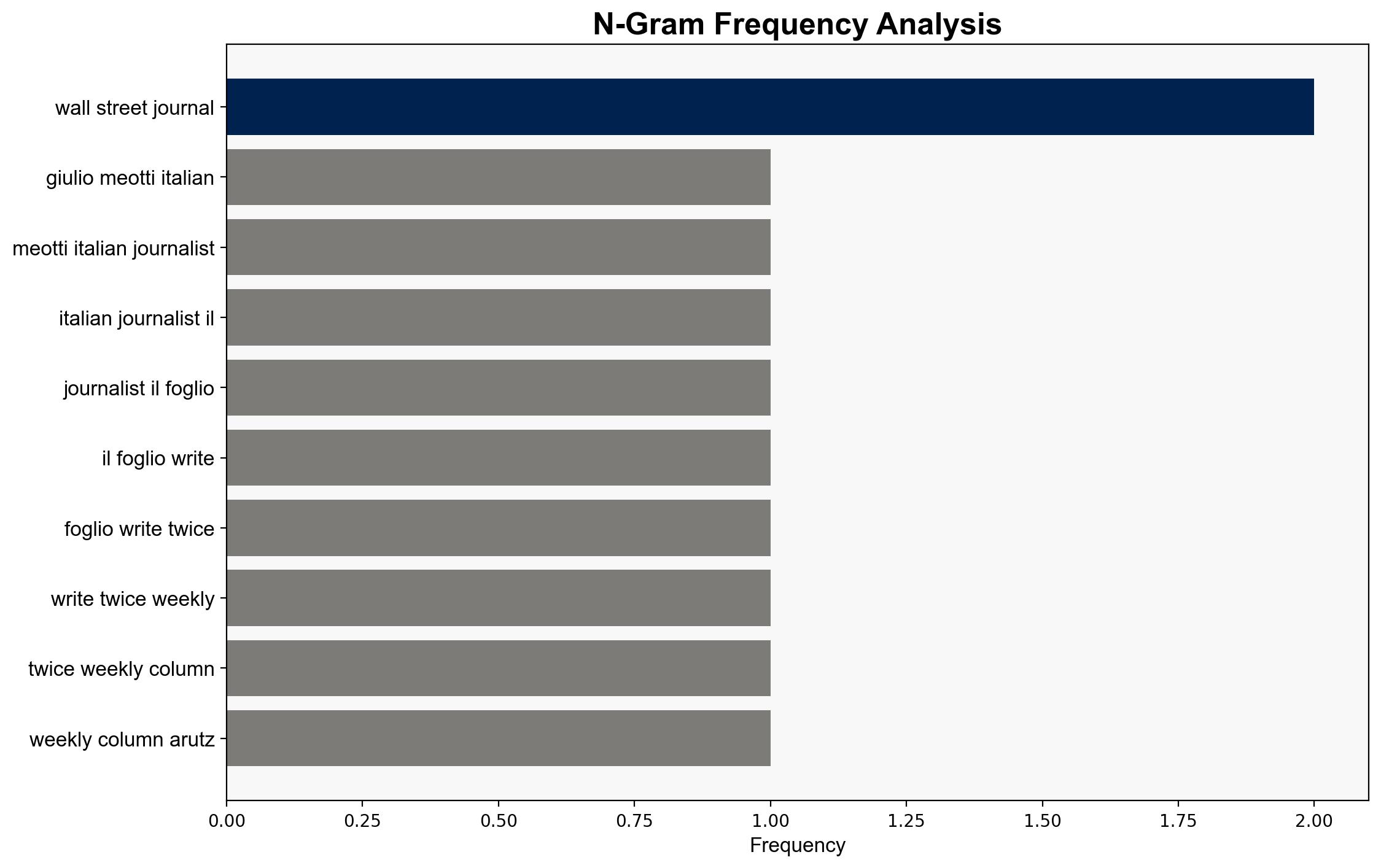Eastern Europe is the West’s last hope – Israelnationalnews.com
Published on: 2025-10-21
Intelligence Report: Eastern Europe is the West’s last hope – Israelnationalnews.com
1. BLUF (Bottom Line Up Front)
The analysis suggests that Eastern Europe is perceived as a bastion against the decline of Western values due to its resistance to Islamic extremism and cultural shifts seen in Western Europe. The most supported hypothesis is that Eastern Europe will increasingly align with Western interests as a counterbalance to perceived threats from both Islamic extremism and geopolitical adversaries. Confidence in this hypothesis is moderate due to underlying assumptions and potential biases in the source material. Recommended action includes strengthening diplomatic and economic ties with Eastern European nations to solidify alliances and counterbalance regional threats.
2. Competing Hypotheses
1. **Hypothesis A**: Eastern Europe will emerge as a key ally for Western nations, acting as a cultural and geopolitical bulwark against Islamic extremism and authoritarian influences.
2. **Hypothesis B**: The perception of Eastern Europe as the last hope for Western values is overstated and primarily driven by ideological narratives rather than grounded in strategic realities.
Using the Analysis of Competing Hypotheses (ACH) 2.0, Hypothesis A is better supported by the narrative of cultural resistance and alignment with Western interests. However, Hypothesis B cannot be dismissed due to potential biases and selective reporting in the source material.
3. Key Assumptions and Red Flags
– **Assumptions**: The narrative assumes that cultural homogeneity in Eastern Europe inherently aligns with Western values. It also presupposes that Western Europe is uniformly in decline.
– **Red Flags**: The source may exhibit confirmation bias, emphasizing negative aspects of Western Europe while highlighting positive aspects of Eastern Europe without balanced evidence.
– **Blind Spots**: The analysis lacks consideration of Eastern Europe’s internal challenges, such as political instability and economic vulnerabilities.
4. Implications and Strategic Risks
– **Geopolitical**: Strengthening ties with Eastern Europe could provoke tensions with Russia, which views the region as within its sphere of influence.
– **Economic**: Increased Western investment in Eastern Europe might lead to economic dependencies or imbalances.
– **Cultural**: The narrative risks oversimplifying complex cultural dynamics, potentially alienating diverse communities within Eastern Europe.
5. Recommendations and Outlook
- Enhance diplomatic engagement with Eastern European countries to foster mutual interests and counterbalance regional threats.
- Invest in regional security initiatives to deter external threats and bolster internal stability.
- Scenario Projections:
- Best Case: Eastern Europe strengthens its role as a strategic ally, enhancing regional stability and security.
- Worst Case: Increased tensions with Russia lead to geopolitical instability.
- Most Likely: Gradual alignment with Western interests, tempered by internal and external challenges.
6. Key Individuals and Entities
– Giulio Meotti
– Sadiq Khan
– Pinchas Dunner
7. Thematic Tags
national security threats, cybersecurity, counter-terrorism, regional focus





